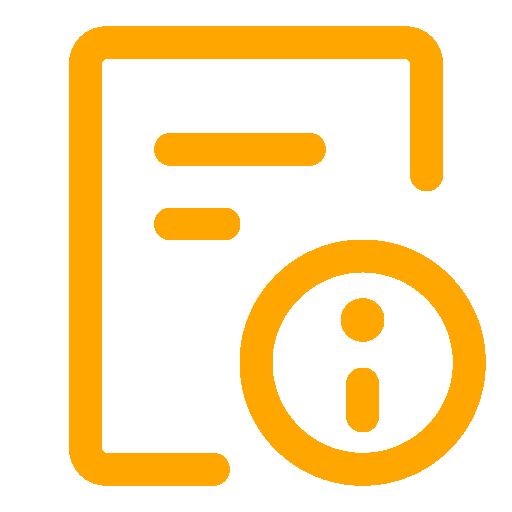Advanced Analytics in Prior Consent
페이지 정보

본문
 The medical care sector is progressively acknowledging the relevance of innovative analytics in optimizing the prior consent process. This important administrative step, which needs healthcare providers to acquire approval from insurance payers prior to providing certain services or medications, has typically been viewed as a bottleneck in individual treatment. With the unification of advanced analytics, stakeholders can leverage data-driven insights to enhance process, minimize administrative worries, and boost person results.
The medical care sector is progressively acknowledging the relevance of innovative analytics in optimizing the prior consent process. This important administrative step, which needs healthcare providers to acquire approval from insurance payers prior to providing certain services or medications, has typically been viewed as a bottleneck in individual treatment. With the unification of advanced analytics, stakeholders can leverage data-driven insights to enhance process, minimize administrative worries, and boost person results.Streamlining Procedures
The advantages of sophisticated analytics prolong beyond plain prediction; they can substantially simplify the prior authorization refines themselves. By carrying out analytics devices that automate regular jobs, healthcare companies can lower the time spent on hand-operated data access and follow-ups.
Recognizing Previous Consent
Prior authorization is intended at managing health care prices and making sure the suitability of services rendered. Organizations are currently turning to sophisticated analytics as a remedy to enhance both speed up and precision in this vital process.
The Function of Information in Previous Consent
Advanced analytics uses the power of big data-- the huge quantity of structured and unstructured information created within the medical care ecosystem. By assessing claims data, person history, company efficiency metrics, and other appropriate info, medical care companies can produce anticipating models that evaluate the chance of approval based upon historical patterns. This ability enables companies to foresee possible difficulties in obtaining prior consent and address them proactively.
Leveraging historic authorization information can help identify patterns in choices made by payers, leading companies to align their entries more closely with what has been accepted in the past. This understanding can substantially improve the preparation and entry procedure, thereby lowering the turn-around time for previous permission demands.
Enhancing Interaction
Clear interaction is crucial for successful prior authorization. Advanced analytics can promote this by offering real-time data sharing amongst service providers, payers, and individuals. When health care organizations execute data-sharing platforms that use analytics, they can boost openness in the previous permission procedure. Those involved can access current info regarding permission demands, decisions made, and the rationale behind them. This boosted communication can promote more powerful partnerships among stakeholders and bring about more joint environments concentrated on individual care.
Improving Process Efficiency
Carrying out innovative analytics in previous consent workflows can lead to substantial performance gains. Advanced analytics devices can evaluate incoming requests, flagging those that are most likely to be refuted based on predictive formulas.
By utilizing information visualization methods, stakeholders can acquire understandings right into process traffic jams and ineffectiveness. This can help companies make notified choices on where to purchase added resources or training, eventually resulting in optimized operations in prior permission processes.
Enhancing Precision and Decision-Making
In addition to enhancing effectiveness, progressed analytics boosts the accuracy of prior authorization choices. By applying artificial intelligence algorithms to large datasets, companies can better comprehend the subtleties of payer needs and clinical standards. This comprehensive understanding permits more exact submissions, decreasing the variety of denials and subsequent charms.
With boosted analytics, organizations can assess the reasons behind prior permission rejections, drawing out beneficial lessons that can be put on future situations. This feedback loophole is critical in fine-tuning both the entry techniques and the education of medical care carriers concerning payer assumptions.
Patient-Centric Approaches
Inevitably, the application of sophisticated analytics in prior authorization is geared in the direction of boosting the person experience. With faster and much more dependable authorizations, individuals can access the required treatments without unnecessary delays. Moreover, advanced analytics can facilitate clear communication in between doctor and clients concerning the condition of consent demands, enhancing openness and trust fund in the treatment procedure.
Health care companies can also use analytics to determine people who require certain treatments based on their treatment journey. By identifying risky people who might face obstacles in navigating the prior permission process, organizations can carry out targeted assistance methods to make sure prompt accessibility to care.
Difficulties and Considerations
While the advantages of sophisticated analytics in previous consent are considerable, companies need to additionally browse a number of difficulties when implementation. Data privacy and security continue to be extremely important issues, as companies have to make sure conformity with policies such as HIPAA while leveraging client data for analytics.
Furthermore, the integration of innovative analytics tools right into existing systems can position technical obstacles. Organizations has to buy training for staff and ensure that the selected devices can perfectly user interface with existing health and wellness details systems.
The reliance on historic data demands constant monitoring and refinement of anticipating formulas to sustain accuracy as medical care requirements and www.portiva.com payer standards advance. Organizations must stay adaptable in their logical methods, ready to pivot as new data emerges.
Future Directions
Looking ahead, the area of innovative analytics in previous authorization is ripe for advancement. As technology proceeds to evolve, the potential for real-time analytics and choice support group is on the horizon. Real-time data exchange could facilitate immediate comments throughout the prior consent process, permitting for dynamic modifications to demands based upon ongoing payer reactions.
The incorporation of natural language processing (NLP) can further enhance the capability to analyze medical documentation and remove relevant information, making sure that prior consent requests are full and compelling.
Additionally, growing collaborations in between medical care organizations and modern technology providers can stimulate developments in analytics abilities, enabling the development of tailored options that attend to certain demands within prior consent.
Conclusion
Advanced analytics in previous authorization stands for a transformative opportunity for medical care companies. As the medical care landscape continues to advance, those companies that effectively carry out and adapt sophisticated analytics methods will be well-positioned to browse the complexities of prior authorization, inevitably improving results for people and suppliers alike.
The medical care market is significantly identifying the value of innovative analytics in enhancing the previous authorization procedure. When medical care companies execute data-sharing platforms that make use of analytics, they can enhance openness in the prior consent process. Ultimately, the application of sophisticated analytics in previous permission is tailored towards boosting the person experience. Advanced analytics in prior consent represents a transformative opportunity for healthcare organizations. As the healthcare landscape proceeds to advance, those organizations that efficiently execute and adjust sophisticated analytics techniques will certainly be well-positioned to navigate the complexities of prior permission, ultimately improving outcomes for individuals and carriers alike.
- 이전글Can a long distance relationship last forever? 25.07.09
- 다음글10 Romantic Tłumaczenia Niderlandzko-polskie Holidays 25.07.08
댓글목록
등록된 댓글이 없습니다.








